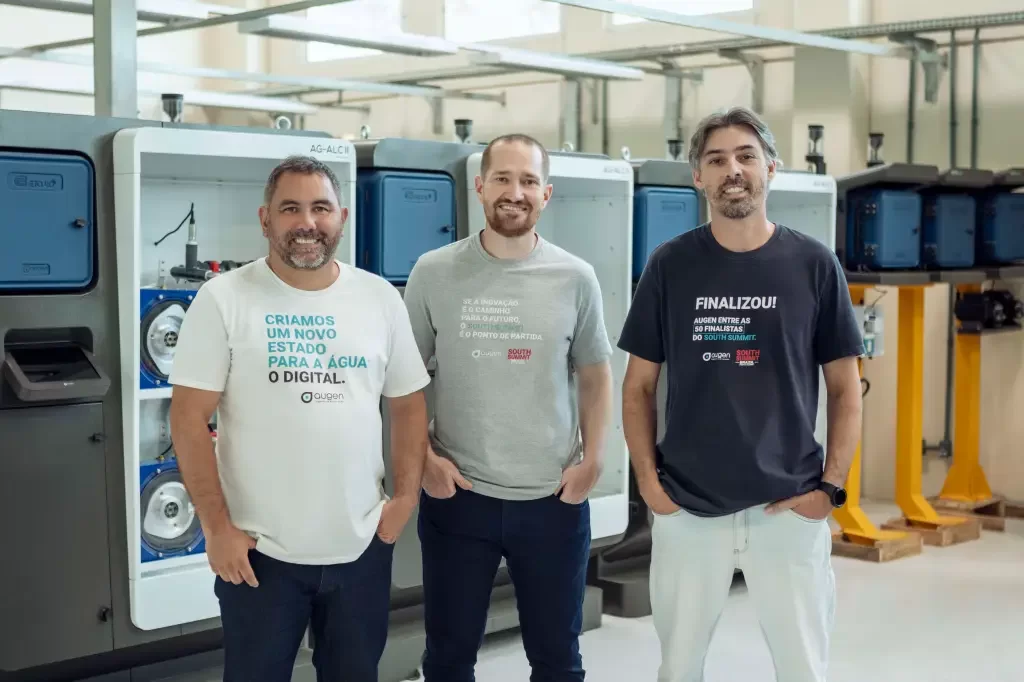Startup receives R$4 million to apply autonomous station technology to water and sewage treatment infrastructures.
The GovTech Fund, managed by Cedro Capital and KPTL, has just invested R$4 million in Augen, a startup specializing in digital solutions for sanitation companies. The contribution marks the beginning of a new cycle for the independent asset manager, as it enters the world of GovTechs. In essence, GovTechs are agents of innovation in public management which, in return, offer society more agile, efficient and transparent processes.
This year, Cedro Capital launched, in partnership with KPTL, the GovTech Fund, one of the largest investment funds in the Midwest dedicated to government technology. Its portfolio of investors includes well-known companies such as computer giant Positivo, as well as Multilaser, and regional development agencies such as AgeRio and Badesul.
The startup Augen was born with the proposal to enable decades-old water treatment, sewage and artesian well infrastructures to be leveraged to the results of industry 4.0 through technology. The complex solution, based on IoT (Internet of Things), caught the attention of Badesul, a state development agency linked to the Secretariat for Economic Development and Tourism, and a strategic investor in the GovTech Fund, managed by Cedro Capital and KPTL, which nominated the company to join the portfolio of more than 60 investments made by the management companies.
Created in 2018 in Rio Grande (RS) from the complementary professional experience of its founders, Augen is a company focused on the digital transformation of the sanitation sector. Now based in the Technology Park of the Federal University of Rio Grande (FURG), it operates from end to end, providing solutions for water treatment, production and distribution.
Then professors at the institution, chemical engineers Fabricio Butierres Santana and Cesar Augusto da Rosa teamed up with mechanical engineer Moisés Fernandes Borges, who has a long career in the private sector. Santana and Rosa had already been working with sanitation for years, and with Augen they were hired by Corsan (Companhia Riograndense de Saneamento) for a special Research and Development (R&D) project to promote efficiency in the company’s water treatment plants (ETAs) and artesian wells (PA).
According to Santana, the idea is to allocate the Fund’s contribution to the commercial structure and financial planning of the product offering. “We want to migrate from a model of selling hardware and installations to a model of offering infrastructure as a service (IaaS). It’s a complex process, which demands care and requires us to be side by side with our clients,” he says.
Achieving standards of digitalization and excellence is Augen’s main differentiating factor, as it implements solutions at the cutting edge of technology in water and sewage treatment plants and artesian wells that have been in use for more than 40 years. In Brazil, much of the water comes from underground wells and the company has created the so-called “Well 4.0”, with analysis, treatment and management of production digitally with in-depth data analysis. After the installation of this digital layer, a 30 to 45% reduction in the use of chemical products and an increase in the quality control of this equipment can be observed.
Today, Brazil consumes an average of 152.1 liters of water per inhabitant per day and all this needs to be treated. What is most striking about this legitimate impact investment is its potential for scalability. After all, there are about 1,350 sanitation service providers in Brazil today, most of them municipal authorities and departments. Currently, only 0.27% of all the water that comes out of the taps is digitized and Augen is entirely responsible for this.
Augen goes to cities and companies and implements the technology in treatment plants. These are devices that can analyze the characteristics of water, transforming them into digital information that can be read by software. You can then analyze the data and make decisions, such as the correct dosage of chemicals.
Among the data analyzed are chlorine, fluoride, color, turbidity, acidity and water temperature. The water passes through the equipment, which identifies how it is and makes the necessary dosages.
During its five years of existence, the startup’s average year-on-year revenue growth has been 115%. She closed 2022 with a turnover of 8 million reais. By 2023, he wants to more than triple this figure, reaching a turnover of 20 million reais. The contribution will help.
Head of KPTL’s GovTech Fund, economist Adriano Pitoli explains that Augen attracted attention because it had developed a sophisticated system not yet available on the market. “During our research, we consulted experts and IoT companies and realized that Augen was the one who managed to come up with a technical solution that had undergone proof of concept,” explains Pitoli.
The issue of sanitation is crucial for the country and central to the theses of the KPTL GovTech Fund. “It’s the country’s main challenge today, where we still live with fourth-world indicators. That’s why we went in search of companies that could actually provide technology. Augen’s solution significantly reduces companies’ capital and operating costs for treating water and wastewater. It’s an example of innovation that will help us overcome this shameful gap in access to water and sewage treatment,” adds Pitoli.
Augen’s business model is focused on state-owned or private sanitation companies with treatment units of up to 600 liters per second. Since its foundation, the company has been recognized with the Top 10 Industry 5.0 awards from South Summit Brazil and the Gaucho Researcher Award for Innovative Startup 2022.

